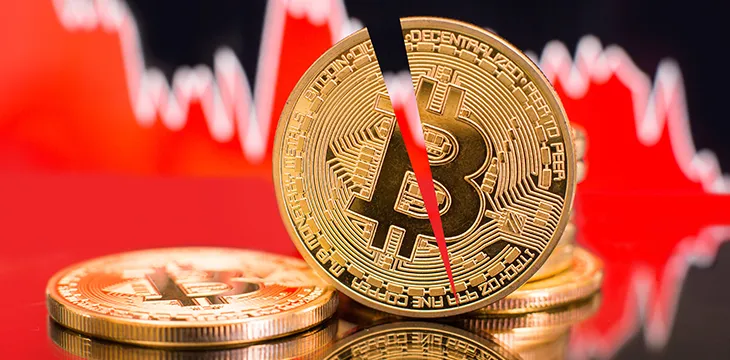|
Getting your Trinity Audio player ready...
|
CoinShares recently published an article titled, “5 popular BTC halving theories: What’s likely to happen and what’s not.” The piece provided several hypotheses regarding the BTC halving that will take place on May 12, and ultimately come to the conclusion that the BTC halving will be a positive event for the BTC network—we disagree.
Let’s take a look at a few of CoinShares theories and examine why their predictions are nonsensical.
Theory #1
Theory: The halving will cause a “mining” death spiral.
CoinShares’s estimated likelihood of this event taking place: 0%
CoinShares believes that a transaction processing death spiral is unlikely for a few reasons; one of these reasons is that: “Many large-scale miners have offtake agreements with utilities that preclude them from simply not taking delivery of the agreed-upon amounts of electricity, and many would be forced to keep mining until they default on their bills (often paid monthly).”
Although it is true that some transaction processors must consume a predetermined amount of electricity from power producers that they are contractually bound to, nothing is stopping the processors from closing shop once they consume that pre-set amount of electricity.
Many processors, especially those who run smaller-scale operations, are not going to be cash-flow positive once BTC halves. These processors are going to have to close up shop or point their hash to a blockchain that is more profitable for them to process. The reduced block reward that will come with mining BTC will not be enough to sustain many miners, and therefore, they will leave the BTC network.
It might not happen immediately, but the BTC network is going to see a significant amount of hash power leave the BTC network over time. Even if the death spiral does not happen right away, it will only get worse as we inch toward future BTC halving events.
Theory #4
Theory: The halving will cause extra sell pressure from transaction processors and drive BTC prices down.
CoinShares’ estimated likelihood of this event taking place: Somewhat likely
CoinShares believes that it is probable that processors will be forced to sell tokens in their BTC to cover operation costs given that the BTC block reward will only be 6.25 instead of 12.5 BTC. They believe that will put sell-pressure on BTC and drive its price down.
However, what CoinShares does not take into consideration, is the fact that BTC processors always sell their BTC to cover their operating costs—they don’t just wait until the halving to sell. That being said, processors are always applying sell-pressure to the BTC network and driving its price down. This theory of theirs is not somewhat likely, rather, it is going to happen because it always happens.
A concerted effort to pump BTC
CoinShares’s BTC halving hypotheses are flawed in many ways. At the same time, we are seeing several major players in the digital currency industry, such as Kraken, publish articles or research, implying that the BTC halving will have a positive effect on the BTC network—while ignoring the downside and reality of the BTC halving. We see this as an organized effort to create a positive narrative around BTC before the halving takes place.
We believe the BTC halving will be a processor blood bath and that the BTC price will dump post-halving after the effects of the price pump starts wearing off. We believe this is the case because the BTC block reward is what attracts miners to the BTC network right now, and when the block reward is reduced to 6.25 BTC, processors will not see that reward as enough of an incentive to keep processing BTC. Therefore, they will move their hash to a blockchain that is more profitable to mine, one that is rich in transaction volume and transaction fees like the original Bitcoin SV (BSV). It’s only a matter of time until our prediction becomes a reality, so let’s wait and see what happens when BTC halves this week.

 07-02-2025
07-02-2025 





